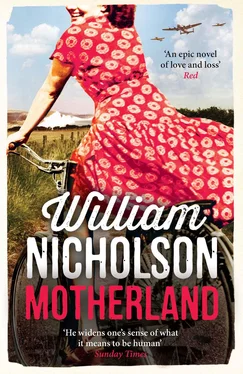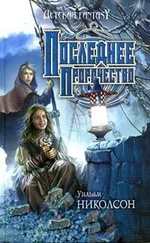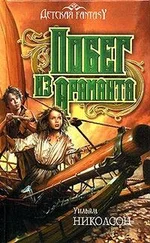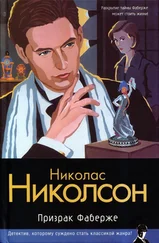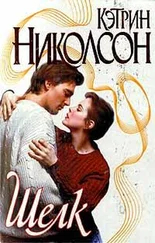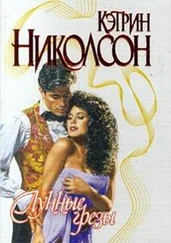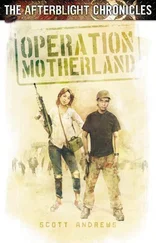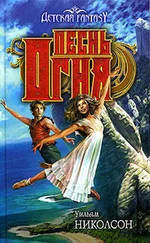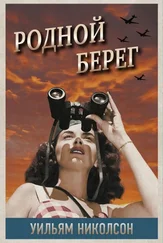‘I believe it even more strongly now. There is a better way of doing business.’
He has the book before him. He reads out his own chosen extract.
‘If the United Fruit Company had been more concerned with the improvement of human relations and social welfare than with the mere obtaining of profits, it could have rendered extraordinary service to the Americas.’
William Cornford gazes at his son across his copy of The Times and says nothing.
‘Just give me a chance to prove it,’ says Larry.
‘What is it you want to prove, darling?’ says Geraldine, joining them at the breakfast table.
‘That we can run our business for the benefit of all,’ says Larry.
‘All who?’ says Geraldine.
Larry is watching his father. He answers Geraldine impatiently.
‘All the employees.’
‘But of course the business benefits the employees,’ says Geraldine. ‘It gives them jobs.’
‘What do you say, Dad?’
‘I’ll tell you what I think you should do,’ says his father. ‘I think you should take a trip to Jamaica.’
Larry leaps up in excitement and strides up and down the breakfast room.
‘The very idea I had myself! Of course I must go to Jamaica. I must see for myself. I must learn everything for myself. Of course I must go to Jamaica. I’m convinced we can produce and sell double the tonnage we’re bringing in.’
‘I’ve no doubt you’re right,’ says his father, smiling.
‘When would you go?’ says Geraldine. ‘How long would you be gone?’
‘You don’t mind, do you?’ Larry turns to her, his face bright at the new prospect.
‘Of course not,’ says Geraldine with composure. ‘You are the breadwinner. Your work must always come first.’
* * *
The day before he sails, Larry receives a letter addressed to him as Lawrence Cornford, care of Fyffes head office. It’s been opened by the office staff, who must have thought it was intended for his long-dead grandfather. The letter is from Nell.
Darling, we’re going to live in France, but I can’t leave without writing to you. I expect you hate me but you shouldn’t, if you had given me the chance I’d have explained. Darling I did it for you, and I was right, wasn’t I? You were never sure about me. I told that story to see what you’d say and I was watching your face and saw how you were frightened and then a gentleman doing his duty so that was that really. I expect you were hurt and angry etc etc but I’m quite sure you’ve got over all that now and forgiven me. Tony Armitage and I are married, I expect you heard, I don’t really know why he’s such a pig most of the time and all this fame has gone to his head. He stamps and rants and calls everyone fools and how he can’t bear fakes and posers, so we’re going to live in France though I don’t see why there shouldn’t be fakes and posers in France too. I do love you darling and you mustn’t mind about the story but come and visit us in France, it’s called Houlgate just down the coast from Deauville and I’m going to be so bored I expect I’ll kill him. He won’t care, all he cares about is himself and his painting which is actually quite restful for me. If I don’t kill him we should get on all right. Remember we said we’d be friends so we have to go on being friends it’s much better than being lovers. The other thing makes men so cross really I’m bored with it. Please write to me at the address above and tell me you forgive me.
34
After a day of driving down long straight empty roads, Ed reaches Narbonne, in the region of France called the Aude. He puts up in a modest inn, and eats a solitary supper of veal, accompanied by the excellent local red wine. Then as is his habit he questions his host about the vineyards of the region. He learns that the best wines are made in the land to the south, in the corner between the Pyrenees and the sea. He is advised to seek out the domaines round the village of Treilles; in particular the domaine de Montgaillard.
The next morning he drives south. On either side of the dusty white road lie shallow valleys planted with vines, sheltered by belts of almond and cypress trees. Low hills rise up beyond, the pink land studded with the grey of olive trees. Umbrella pines grow on the ridges, slanting under the pressure of the prevailing wind. The houses he passes are pink as the land, made of the same stone. He sees no one. The clusters of houses and barns have an air of abandonment.
He reaches a village at last, and stops by the church. A small bar seems to be open. In its dark interior, he finds a somnolent woman, who gives him directions to the chateau.
He follows the road, which becomes a rising track. He notes vines in their neat rows on either side. Then there at the end of the track appears the chateau, which is in fact little more than a fortified farm.
The house is big and square, with a single tower attached as if by some afterthought at one end. Two very old cars are pulled up in front of the wide door, which stands open. Ed knocks, and getting no response, calls out. After a while a girl of about ten appears, and stares at him, and runs away. After another while Ed hears a slow heavy tread, and a large elderly man presents himself. He has grey hair and grey skin that falls down his face in folds. He stoops, as tall men often do, which gives him a sad and defeated air.
Ed introduces himself and explains his business. His host, whose name is Monsieur de Nabant, is astonished to learn that an Englishman has arrived with a view to buying his wine. He keeps shaking his head, and rubbing at his cheeks. Then he invites his visitor into his house.
The interior seems to consist of one very large room, where all the affairs of the family are conducted at once. The shutters are closed against the heat, so the room is cool and dark. In the beamed and shadowy spaces Ed makes out a daybed, on which reclines an elderly lady; a kitchen table, round which sit several children; an immense fireplace, holding an iron cooking range; a grand piano; and some item of agricultural machinery on the floor, in the process of being mended by a young man. Assorted dogs gather round him to sniff at his legs.
Ed is shown to an upholstered chair in the part of the hall that might be called the sitting room. In a matching chair facing him there sits a second elderly man, small as a dwarf, with an entirely bald head, a smooth almost blank face, and remarkable grey curled moustaches. This person, who is not introduced to Ed, gazes at him with unsmiling intensity; exactly as if he supposes himself to be invisible.
M. de Nabant issues a stream of orders, and the children jump up and rush out. A middle-aged woman in an apron then comes in, makes a little bob of respect to Ed, and goes out again.
‘Vous mangerez chez nous,’ says M. de Nabant.
Ed thanks him.
Food arrives, carried in by the children. A bowl of olives, a saucisson , a block of pâté, a slab of pain de campagne , a cake of butter.
‘Pour boire, il faut manger,’ says M. de Nabant.
The wine arrives in unlabelled bottles. Ed and his host and his host’s luxuriantly moustached friend eat and drink. The rest of the household and the dogs look on from the shadows. The wine is unusual, very ripe and gamy. M. de Nabant watches Ed as he drinks and notes his response with satisfaction.
‘Notre premier vendange depuis la guerre.’
Ed asks what combination of grape varieties he uses.
‘Carignan, Mourvèdre, Grenache Noir.’
Another bottle is opened.
‘Seulement Mourvèdre,’ says M. de Nabant.
Between the three of them they drink a bottle and a half of the wine. The woman comes and goes with the dishes. The boy on the floor grunts and mutters over his spanners. The children, no longer excited by the newcomer, return to giggling round the table. The dogs roll over and go back to sleep.
Читать дальше
